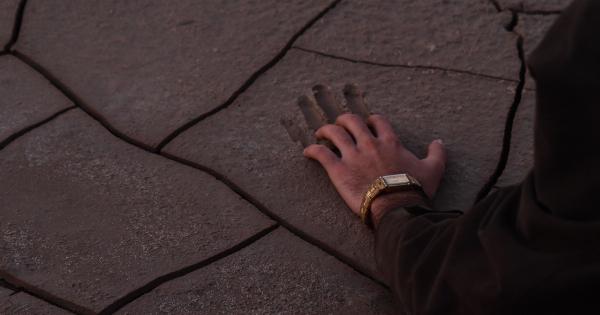Itches are frustrating and can be overwhelming at times. They occur when itch receptors get stimulated as a result of an irritant, allergen, or bites from insects or animals like mosquitoes, scabies, or bed bugs.
The instinctive reaction to an itch is to scratch the affected area. However, this is not always the best approach as the scratching itself can cause more harm than good. Here are a few things you should avoid doing when you have an itch.
1. Scratching Vigorously
The most common response to an itch is to scratch it. Scratching the area sharply or frequently is not the best way to handle an itch.
Scratching the affected area can cause tissue damage, irritation, and pain, leading to more severe infections and complication. Scratching vulnerabilities the skin and can easily introduce microbes and bacteria, leading to infections. Scratching also causes inflammation, swelling, and redness, making the area more sensitive and painful.
2. Using Dirty Nails to Scratching
Using dirty nails to scratch is worse than scratching with clean hands. Our nails harbor germs and microbes, and using them can easily introduce these microbes into the itchy area, causing infections and complications.
When you use dirty nails, you’re also at high risk of scratching too hard and damaging the skin, leading to more itching and irritation.
3. Applying Topical Medications without Consulting a Doctor
Applying topical medication is a common practice in managing itch and skin rash. However, doing this without consulting a doctor or medical professional can cause severe irritation, worsening of the condition, or promoting drug resistance.
Some topical medications are not recommended for specific skin types and can cause adverse reactions such as rashes, blisters, and intense itching.
4. Wearing Tight Fittings Clothes
Wearing tight-fitting clothes can increase friction, which can irritate or worsen an itch. Tight clothes can also cause sweat and moisture buildup.
The trapped moisture can provide a conducive environment for microbes to thrive, leading to skin infections and complications.
5. Ignoring Persistent Itches
Itching is common and temporary. However, continuous itching that persists for more than two weeks can be a sign of a severe skin infection or underlying health condition.
Persisting itches should not be ignored under any circumstances, as they can lead to severe damage and infections. It is advisable to seek medical attention and treatment if the itch persists for more than two weeks.
6. Taking Long Hot Showers
Taking long hot showers can be soothing but can also be harmful to the skin and worsen itching. Hot water can cause the skin to dry out, leading to more itching and irritation.
Showering with hot water can affect the skin’s protective barrier and cause more damage, leaving the skin more vulnerable to infections and other skin conditions.
7. Using Abrasive or Scratchy Bath Towels
Using an abrasive towel can cause damage to the skin and result in localized trauma, making the itching worse. Use soft towels to pat dry the affected area or let it air dry.
Rubbing or aggressively wiping the itching area can worsen the itching or cause excoriation, leading to infections and irritation.
8. Using Unknown Laundry Detergents
Unknown laundry detergents can contain harsh chemicals that can cause skin irritation and itching. When selecting detergent, it is essential always to check the ingredients’ list and ensure they do not contain any known skin irritants.
Some of the common skin irritants found in detergents include sodium laureth sulfate, formaldehyde, and parabens. The best approach is to use a gentle hypoallergenic detergent that does not contain these irritants.
9. Touching the Itchy Area Constantly
Constantly touching the itching area can cause more harm than good. Touching or rubbing the affected area can introduce microbes, cause inflammation and irritation, and worsen itching.
It is best to avoid constant touching and instead, find ways to cool or soothe the itching area. Applying a cold compress or dabbing the area with a mild lotion or ointment can help alleviate the itching.
10. Allowing Stress to Overwhelm You
Stress is known to affect the body’s immune system and can contribute to increased itching. When we are stressed, our body releases cortisol, a hormone known for worsening skin conditions such as itching and rashes.
Finding ways to manage stress can help alleviate the symptoms of itching. Meditation, yoga, and mindfulness exercises are some of the most effective ways of managing stress and preventing itching and rashes.
In conclusion, managing itching requires a lot of self-control and patience. Scratching and all other irritations that can cause more damage to the skin and worsen the itching should be avoided.
When attempted, practicing good hygiene, seeking medical attention, and managing stress can go a long way in preventing and alleviating the symptoms of itching.































